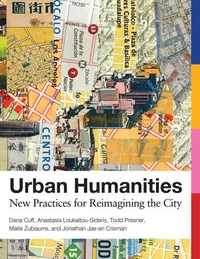A field-defining work that demonstrates how architects are breaking with professional conventions to advance spatial justice and design more equitable buildings and cities. As state violence, the pandemic, and environmental collapse have exposed systemic inequities, architects and urbanists have been pushed to confront how their actions contribute to racism and climate crisis-and how they can effect change.
Establishing an ethics of spatial justice to lead architecture forward, Dana Cuff shows why the discipline requires critical examination-in relation to not only buildings and the capital required to realize them but privilege, power, aesthetics, and sociality. That is, it requires a reevaluation of architecture's fundamental tenets. Organized around projects and topics, Architectures of Spatial Justice is a compelling blend of theory, history, and applied practice that focuses on two foundational conditions of architecture: its relation to the public and its dependence on capital.
The book draws on studies of architectural projects from around the world, with instructive case studies from Chile, Mexico, Japan, and the United States that focus in particular on urban centers, where architecture is most directly engaged with social justice issues. Emerging from more than two decades of the author's own project-based research, Architectures of Spatial Justice examines ethically driven practices that break with professional conventions to correct long-standing inequities in the built environment, uncovering architecture's limits-and its potential.
A field-defining work that demonstrates how architects are breaking with professional conventions to advance spatial justice and design more equitable buildings and cities. As state violence, the pandemic, and environmental collapse have exposed systemic inequities, architects and urbanists have been pushed to confront how their actions contribute to racism and climate crisis-and how they can effect change.
Establishing an ethics of spatial justice to lead architecture forward, Dana Cuff shows why the discipline requires critical examination-in relation to not only buildings and the capital required to realize them but privilege, power, aesthetics, and sociality. That is, it requires a reevaluation of architecture's fundamental tenets. Organized around projects and topics, Architectures of Spatial Justice is a compelling blend of theory, history, and applied practice that focuses on two foundational conditions of architecture: its relation to the public and its dependence on capital.
The book draws on studies of architectural projects from around the world, with instructive case studies from Chile, Mexico, Japan, and the United States that focus in particular on urban centers, where architecture is most directly engaged with social justice issues. Emerging from more than two decades of the author's own project-based research, Architectures of Spatial Justice examines ethically driven practices that break with professional conventions to correct long-standing inequities in the built environment, uncovering architecture's limits-and its potential.

 , qui est-ce ?
, qui est-ce ?